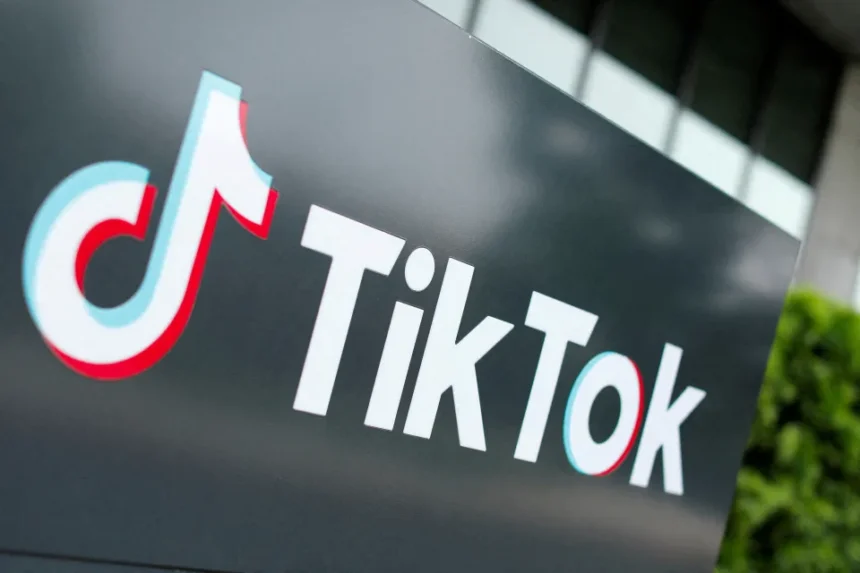Unredacted portions of the lawsuit claim TikTok also identified money laundering on its platform.
In a damning revelation, Utah Attorney General Sean Reyes has filed a lawsuit against TikTok, accusing the platform of knowingly allowing minors to be exploited on its livestream feature, TikTok Live. The allegations paint a concerning picture of how TikTok’s systems and profit-driven mechanisms may have failed to protect vulnerable users, exposing them to exploitation and criminal activity.
The Alarming Findings Behind TikTok Live
The lawsuit claims that TikTok Live, the platform’s livestreaming feature, was not just a hub for concerning interactions between adults and minors but also a source of revenue for TikTok. Through its virtual gifting system, TikTok allegedly profited from transactions occurring during these livestreams—transactions that sometimes involved nudity and sexual exploitation.
TikTok Live’s virtual gifting system allows viewers to purchase and send digital gifts to livestream hosts. These gifts are then converted into real money, with TikTok taking a cut of each transaction. According to the lawsuit, the algorithm that prioritizes livestreams receiving virtual gifts may have amplified the visibility of these exploitative streams, enabling them to reach a wider audience.
Project Meramec: TikTok’s Internal Investigation
The lawsuit references a TikTok investigation, code-named “Project Meramec,” which revealed that “hundreds of thousands of children” were bypassing the platform’s age restrictions. These underage users were hosting livestreams and interacting with adults, exposing themselves to harmful and inappropriate content. Despite uncovering these disturbing trends, TikTok allegedly failed to take adequate action to prevent such activity.
Criminal Activities on TikTok Live
The Utah lawsuit also highlights another internal TikTok investigation, dubbed “Project Jupiter,” which uncovered the platform’s livestreaming feature being exploited for criminal purposes. TikTok found that drug dealers and fraudsters were using TikTok Live to launder money. These findings further underline the systemic issues with TikTok Live’s moderation and oversight.
TikTok’s Profits at the Expense of Safety
One of the most contentious aspects of the lawsuit is the claim that TikTok profited from livestreams involving minors and exploitative content. By taking a percentage of the revenue generated through its virtual gifting system, TikTok allegedly benefited financially from these harmful interactions. The lawsuit argues that this profit-driven approach prioritized revenue over the safety and well-being of its users, particularly minors.
TikTok Responds
In response to the lawsuit, TikTok issued a statement defending its safety measures and community guidelines. The company criticized the lawsuit for allegedly cherry-picking outdated information and taking quotes out of context to misrepresent TikTok’s efforts.
TikTok’s statement emphasized the platform’s commitment to safety, highlighting features like:
- Default screen time limits and robust safety protections for teen accounts.
- Family Pairing tools that allow parents to supervise their teens’ activity on the app.
- Strict livestreaming requirements that limit participation to users aged 18 and older.
- Aggressive enforcement of Community Guidelines to address harmful content.
“This lawsuit ignores the number of proactive measures that TikTok has voluntarily implemented to support community safety and well-being,” the company stated.
Ongoing Legal Scrutiny
This is not the first time TikTok has faced legal challenges related to child safety. In 2023, Utah’s Attorney General filed a separate lawsuit accusing TikTok of using addictive design techniques to target children. Additionally, the Federal Trade Commission (FTC) has previously investigated TikTok for its handling of child privacy, leading to growing concerns about the app’s ability to safeguard its youngest users.
The broader implications of TikTok’s practices have also drawn national attention, with some lawmakers advocating for a ban on the app due to its potential risks to children and national security. The issue has reached the U.S. Supreme Court, where a decision on the app’s future in the United States remains pending.
A Call for Accountability
The Utah lawsuit raises critical questions about the responsibilities of social media platforms in protecting vulnerable users. As the legal battle unfolds, it will likely prompt broader discussions about the ethical implications of monetizing user interactions, especially when minors are involved.
TikTok, a platform with over a billion users worldwide, wields significant influence over its audience, including millions of teenagers and children. This lawsuit underscores the urgent need for stricter oversight and accountability in the tech industry, where the balance between profit and safety often remains precarious.
The outcome of this case could set a precedent for how social media platforms are held accountable for the safety of their users, particularly the youngest and most vulnerable. For now, the spotlight remains firmly on TikTok, as it navigates these serious allegations and their potential impact on its reputation and operations.










